Khvylovy, Mykola
Khvylovy, Mykola [Хвильовий, Микола; Xvyl’ovyj], b 14 December 1893 in Trostianets, Kharkiv gubernia, d 13 May 1933 in Kharkiv. Prominent Ukrainian writer and publicist of the Ukrainian cultural renaissance of the 1920s. Born Mykola Fitilev, he graduated in 1916 as an extension student from the Bohodukhiv Gymnasium. In 1919 he joined the Communist Party (Bolshevik) of Ukraine. In 1921 he moved to Kharkiv, where he worked as a millwright and also joined a body of writers grouped around Vasyl Blakytny and the newspaper Visti VUTsVK. In 1921, with Volodymyr Sosiura and Maik Yohansen, he signed the literary manifesto ‘Our Universal to the Ukrainian Workers and Ukrainian Proletarian Artists’ (published in the collection Zhovten’). In the same year his poem ‘V elektrychnyi vik’ (In the Electrical Age) and his poetry collection Molodist’ (Youth) were published.
After his second collection, Dosvitni symfoniï (Twilight Symphonies, 1922), appeared, he switched to writing prose. His first short story, ‘Zhyttia’(Life), was published in 1922. His first collections of short stories— Syni etiudy (Blue Etudes, 1923) and Osin’ (Autumn, 1924)—immediately won him the acclaim of various critics including Serhii Yefremov, Oleksander Biletsky, the party critic Volodymyr Koriak, and the émigrés Yevhen Malaniuk and Dmytro Dontsov.
The ornamental, impressionistic style of these and later lyrical-romantic stories—which exhibited the influence of expressionism (including its inherent naturalism)—became paradigmatic for most young Soviet Ukrainian writers then beginning their careers. Khvylovy experimented boldly in his prose, introducing into the narrative diaries, dialogues with the reader, speculations about the subsequent unfolding of the plot, philosophical musings about the nature of art, and other asides. In his brief period of creativity (less than five years) he masterfully depicted the revolution in Ukraine and the first hints of its degeneration, using a rich gallery of characters, most of them members of the intelligentsia. The characters' initial infatuation with the revolution ends in disillusionment, and their expected rebirth of Ukraine reifies into a new embodiment of the ‘snout of the indomitable boor’ in such stories as ‘Redaktor Kark’ (Editor Kark), ‘Na hlukhim shliakhu’ (On the Overgrown Path), and ‘Synii lystopad’ (Blue November). A later cycle of stories consists of merciless satires of insipid philistines and the transformation of former revolutionaries into bureaucrats and parasites. From 1924 on, Khvylovy's stories depict life much more psychodramatically and tragically, as in the novella ‘Ia’ (I) and ‘Povist' pro sanatoriinu zonu’ (Tale of the Sanatorium Zone).
At the same time Khvylovy played a key role in the life of literary organizations. One of the founders of the proletarian-writers' group Hart in 1923, he soon became dissatisfied with its toeing of the official line and left it with a small group of writers to form the group Urbino. Later he opposed both Hart and the peasant-writers' group Pluh for promoting mass participation in literary work instead of striving for artistic quality. He initiated and inspired with his ideas the group Vaplite—the Free Academy of Proletarian Literature. Formed in November 1925, it numbered among its members the most talented writers, most of them former Pluh or Hart members. During Vaplite's brief existence (1925–8), Khvylovy tried his hand at large prose works. Around 1925 he began working on the novel ‘Iraïda,’ of which only one excerpt was published under the title ‘Zav'iazka’ (The Beginning). It reveals a change in Khvylovy's style: instead of being lyrical-ornamental and fragmentary, his narrative becomes balanced and more realistic. This change is also discernible in the novel Val’dshnepy (Woodcocks), of which only the first part was published (in the periodical Vaplite, no. 5, 1927); the second part, although it had been printed, was confiscated at the press by the authorities and destroyed. Despite diverse assessments of the purely literary aspects of the novel, Khvylovy's followers saw Val’dshnepy as the culmination of his literary work, while others, like Yevhen Malaniuk, considered it an ‘obvious failure.’
Khvylovy was a superb pamphleteer and polemicist. His polemical pamphlets provoked the well-known Ukrainian literary discussion of 1925–8. In the first series of pamphlets, published in the supplement Kul’tura i pobut to Visti VUTsK in April–June 1925 and later that year separately as Kamo hriadeshy? (Whither Goest Thou?), he raised the decisive question ‘Europe or "enlightenment"?’ using the term ‘enlightenment’ to refer to Ukraine's provinciality and backwardness under Russian oppression. And his reply was, ‘For art it can only be Europe.’
In the second series, ‘Dumky proty techiï’ (Thoughts against the Current), which appeared in Kul’tura i pobut in November–December 1925 and separately in 1926, Khvylovy further developed his argument against the ‘cult of epigonism.’ By adopting a psycho-intellectual orientation on Europe, he argued, Ukrainians can enter onto their own path of development. To this they have a perfect right, ‘Insofar as the Ukrainian nation sought for several centuries its independence, we accept this as evidence of its unconquered desire to manifest and fully develop its national (not nationalist) being.’ Again he underlined the necessity of overcoming its cultural backwardness and the psychological dependence on Moscow, in the belief ‘that a nation can manifest itself culturally only if it finds its own, unique path of development.’
The third series of pamphlets, ‘Apolohety pysaryzmu’ (The Apologists of Scribbling), was published in Kul’tura i pobut in February–March 1926, but not separately. The idea of a completely independent development for Ukrainian literature, oriented ‘at least not on Russian [literature],’ was developed further, and the idea of Ukraine's right to sovereignty was formulated as follows: ‘Is Russia an independent state? Yes, it's independent! Well then, we too are independent.’ His last, and probably most radical, polemical work, ‘Ukraïna chy Malorosiia?’ (Ukraine or Little Russia?), was suppressed by the authorities; only a few quotations from it that appeared in the official critiques—Andrii Khvylia's Vid ukhylu v prirvu ... (From Deviation to the Precipice ...) and Yevhen Hirchak's Na dva fronta v bor’be s natsionalizmom (On Two Fronts in the Struggle with Nationalism)—are known.
Khvylovy's prose, particularly Val’dshnepy, which Khvylia described as antiparty, counterrevolutionary, and even fascist, and his polemical pamphlets make him the central figure in the above-mentioned literary discussion, which by its very nature turned into a political discussion of the direction Ukraine should take in its development. The national-communist opposition in the Communist Party (Bolshevik) of Ukraine, led by Oleksander Shumsky, the Neoclassicists (particularly Mykola Zerov), and the entire nationally conscious, progressive Ukrainian intelligensia more or less openly sided with Khvylovy. On the opposing side were not only Khvylovy's literary opponents, such as Serhii Pylypenko, Samiilo Shchupak, and Volodymyr Koriak, but also the party leaders Andrii Khvylia, Lazar Kaganovich, Vlas Chubar, Hryhorii Petrovsky, and other members of the Politburo of the CP(B)U. Moscow's chauvinistic proponents of a great (unitary ‘Russian’) state—V. Vaganian, Yu. Larin, and Joseph Stalin himself—threw their support behind Khvylovy's opponents. In a letter to Kaganovich, Stalin warned the CC CP(B)U against adopting Khvylovy's Western orientation and condemned it as ‘bourgeois nationalism.’
Thenceforth Khvylovy was subjected to unrelenting persecution and was forced to move gradually from an offensive to a defensive tactic. To save Vaplite from forced dissolution, in December 1926 he was compelled to admit his ‘errors,’ and in January 1927 he, Mykhailo Yalovy, and Oles Dosvitnii agreed to expulsion from Vaplite. From December 1927 to March 1928 Khvylovy lived in Berlin and Vienna, and according to some accounts in Paris. In January 1928, before returning to Ukraine, he sent an open letter from Vienna to the newspaper Komunist renouncing his slogan ‘Away from Moscow’ and recanting his views.
Yet he did not truly surrender: on his initiative an unaffiliated journal, Literaturnyi iarmarok, was established in 1928, and it continued Vaplite's orientation. In it Khvylovy's satirical stories ‘Ivan Ivanovych’ and ‘Revizor’ (The Inspector-general) appeared. In 1930 Literaturnyi iarmarok ceased publication, and Khvylovy inspired one last organization, the Union of Workshops of the Proletarian Literary Front, or Prolitfront, which published a journal Prolitfront. None of his stories, but only his polemical articles refuting the hostile criticism of Nova Generatsiia and the All-Ukrainian Association of Proletarian Writers (VUSPP), appeared in the journal. When Prolitfront was disbanded in 1931 and many of its members joined VUSPP, Khvylovy no longer had a journal in which he could express his ideas. His attempts at writing on party-approved themes, as in the stories ‘Maibutni shakhtari’ (The Future Miners), ‘Ostannii den’‘ (The Last Day), and ‘Shchaslyvyi sekretar’ (The Happy Secretary), were dismal failures. Thus, by the early 1930s Khvylovy's every opportunity to live, write, and fight for his ideas was blocked. Since he had no other way to protest against Pavel Postyshev's terror and famine that swept Ukraine in 1933 (see Famine-Genocide of 1932–3), he committed suicide. This act became symbolic of his concern for the fate of his nation.
Immediately after his death, Khvylovy's works and even his name were banned from the public domain. Even after the post-Stalin thaw, when many other writers were ‘rehabilitated’ and selected works of some were published, the ban on his works and ideas has been enforced.
Khvylovy expressed in his works his own concept of Ukraine's renaissance spawned by the Revolution of 1917. Ukraine could overcome its slavishness and provinciality and ‘catch up to other nations,’ he believed, only by unreservedly breaking ‘away from Moscow’ and orienting itself psychologically and culturally on the progressive aspects of ‘Europe.’ As an alternative to both ‘Moscow’ and ‘Europe’ Khvylovy proposed the romantic idea of an ‘Asiatic renaissance’—an awakening of Asia and other colonial, underdeveloped parts of the world. This renaissance was to begin in Ukraine, situated as it was between the West and the East, and spread to all parts of the world. Like Mykola Zerov, he considered Ukraine's orientation towards ‘psychological Europe’ a necessary precondition for Ukraine to fulfill its messianic role in this renaissance. As a romantic writer and thinker, Khvylovy believed that a ‘vitalized romanticism’ (romantyka vitaizmu) would be the literary style of the first period of the Asiatic renaissance.
Khvylovy's historiosophical vision has become known as Khvylovism, and his followers, as Khvylovists. They were physically destroyed during the Stalinist terror or were forced to reconstruct themselves as socialist realists. Several of them—Yurii Blokhyn, Petro Holubenko, Hryhory Kostiuk, Yurii Lavrinenko, Arkadii Liubchenko, and Pavlo Petrenko—emigrated during the Second World War to the West, where they popularized and studied Khvylovy's works. A first complete collection of his works has appeared (5 vols, 1978–86) under the editorship of H. Kostiuk. The first full edition of Khvylovy's works (in two volumes) to be published in post-Soviet Ukraine appeared in Kyiv in 1991.
BIBLIOGRAPHY
Leites, A.; Iashek, M. (eds). Desiat’ rokiv ukraïns’koï literatury (1917–1927), 2 vols (Kharkiv 1927–8)
Rudnyts’kyi, M. Vid Myrnoho do Khvyl’ovoho (Lviv 1936)
Hordyns’kyi, Ia. Literaturna krytyka pidsoviets’koï Ukraïny (Lviv 1939)
Han, O. Trahediia Mykoly Khvyl’ovoho (np 1947)
Holubenko, P. Mykola Khvyl’ovyi i suchasnist’ (np 1947)
Luckyj, G. Literary Politics in the Soviet Ukraine, 1917–1934 (New York 1956)
Lavrinenko, Iu. (ed). Rozstriliane vidrodzhennia: Antolohiia, 1917–1933 (Paris 1959)
Khvylovy, M. Stories from the Ukraine, trans with an intro by G. Luckyj (New York 1960)
Sherekh, Iu. Ne dlia ditei (New York 1964)
Liubchenko, A. Ioho taiemnytsia (Paris 1966)
Smolych, Iu. Rozpovid’ pro nespokii (Kyiv 1968)
Lavrinenko, Iu. Zrub i parosty (Munich 1971)
Luts'kyi, Iurii (ed). Vaplitians’kyi zbirnyk (Edmonton and Toronto 1977)
Khvyl'ovyi, M. Tvory v p'iat'okh tomakh, vols 1–5, ed H. Kostiuk; intros by H. Kostiuk, D. Ferguson, M. Shkandrij, and Iu. Shevelov (New York, Baltimore, and Toronto 1978–86)
Mace, J. Communism and the Dilemmas of National Liberation: National Communism in Soviet Ukraine, 1918–1933 (Cambridge, Mass 1983)
Khvylovy, Mykola The Cultural Renaissance in Ukraine: Polemical Pamphlets, 1925–1926, trans with an intro by M. Shkandrij (Edmonton 1986)
Khvyl’ovyi, M. Tvory u dvokh tomakh, vols 1–2, eds M. Zhulynsky and P. Maidanchenko; intro by M. Zhulynsky (Kyiv 1991)
Shkandrij, Myroslav Modernists, Marxists, and the Nation: The Ukrainian Literary Discussion of the 1920s (Edmonton 1992)
Iushchenko, O. Zoria Mykoly Khvyl’ovoho: Publitsystyka, poeziï (Kyiv 1997)
Kratochvil, A. Mykola Chvyl'ovyj—eine Studie zu Leben und Werk (Munich 1999)
Bezkhutryi, Yu. Khvyliovyi: problemy interpretatsii (Kharkiv 2003)
Bezkhutryi, Yu. Khudozhnii svit Mykoly Khvyliovoho (Kharkiv 2005)
Pliushch, Leonid. Ioho taiemnytsia, abo ‘prekrasna lozha’ Khvyl’ovoho (Kyiv 2006)
Kodak, Mykola. Mykola Khvyl’ovyi iak mytets’-psykholoh (Lutsk 2008)
Shapoval, Iurii. Poliuvannia na ‘Val’dshnepa.’ Rozsekrechenyi Mykola Khvyliovyi (Kyiv 2009)
Ivan Koshelivets
[This article originally appeared in the Encyclopedia of Ukraine, vol. 2 (1988).]
.jpg)
.jpg)
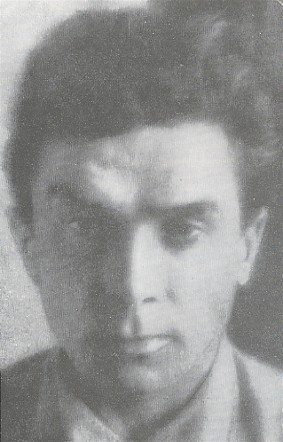
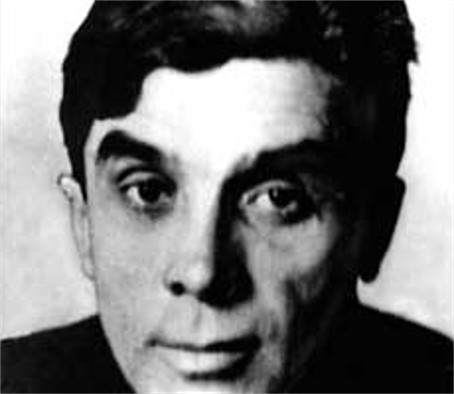
.jpg)
.jpg)
.jpg)
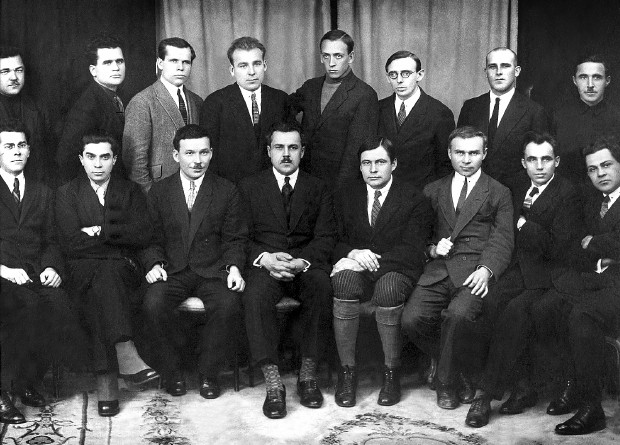
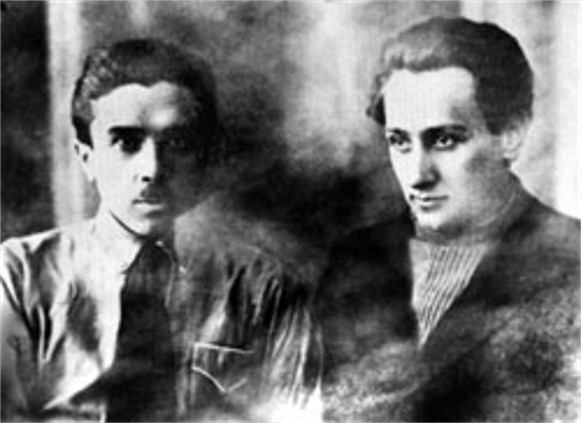
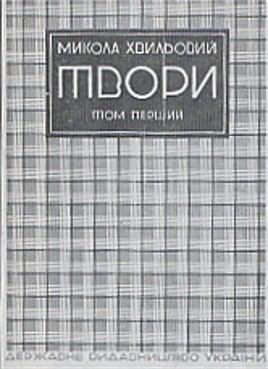
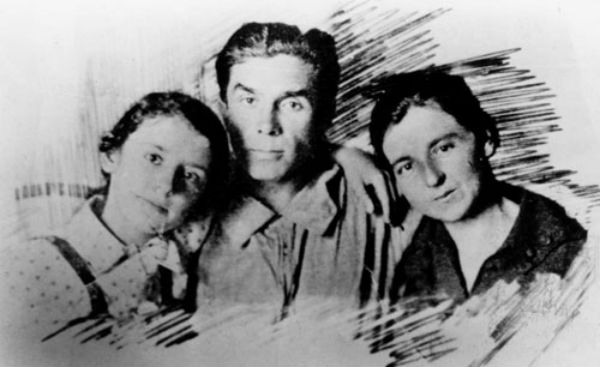
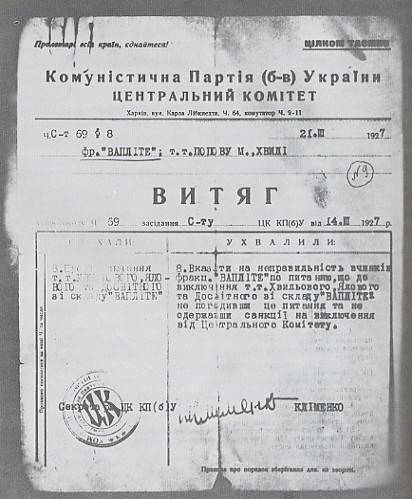
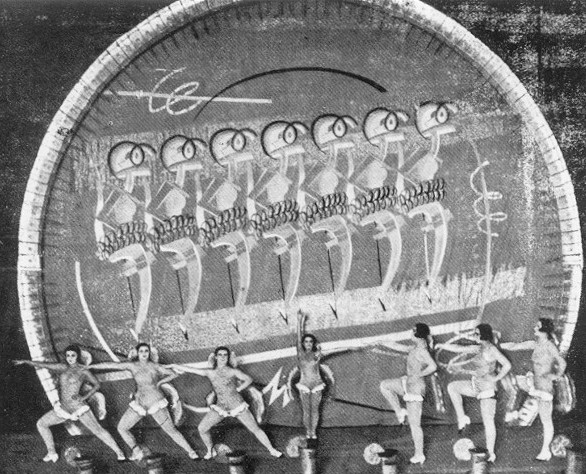
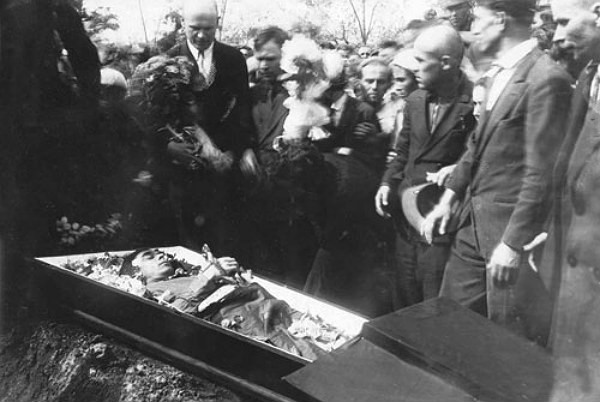
.jpg)